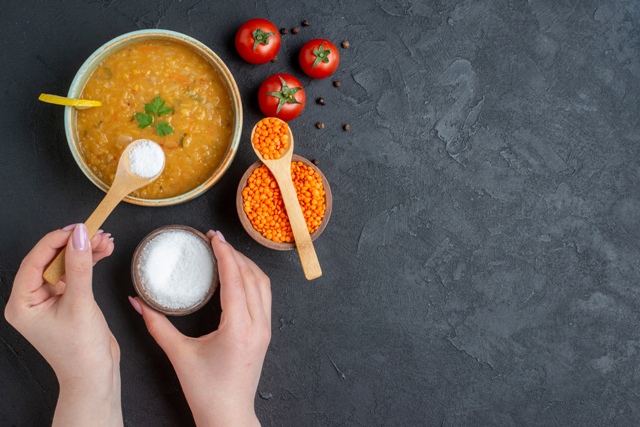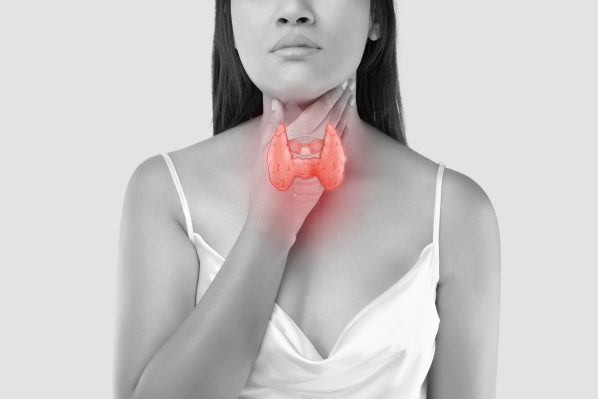Iodine is an important trace element required for synthesising thyroid hormones. It plays various important roles within body including the growth and development of central nervous system. It is thus better to consume iodine rich food in order to protect the body from the harmful consequences of iodine deficiency
This article will give an overview of 12 best iodine rich foods that should be included in diet for boosting up the overall health status –
Seaweed
- It is considered as one of the richest sources of iodine thus they should be included in the diet in order to prevent iodine deficiency
- It has estimated that one gram of seaweed contains about 16 to 2984 mcg of iodine, which is responsible for fulfilling 11 percent to 1989 percent of the RDA of the respective nutrient
- It has seen that consumption of seaweed supplements are also associated with boosting up the iodine status of the body, whereas they also help to increase the concentration of the thyroid hormone in the body
- Japanese are consuming the most iodine in the world especially in the form of seaweed and this could be the reason behind their high life expectancy
- Nori, wakame, kombukelp are the different kinds of seaweed which are extremely rich in iodine and they should be incorporated in the diet in order to obtain better health

Iodised salt
- It is very popular and well known food product that has been widely used as an important source of iodine
- It is also considered as the cheapest source of iodine which can be afforded by people of every socio economic background
- It is estimated that about 71 mcg of iodine is present in 1.5 gm of iodised salt that can fulfil the requirement of 47 percent of daily iodine intake
- Every country across the world started to iodise their nation salt since around 1922, which play very crucial role in eliminating iodine deficiency and now this salt iodisation process is recognised as a useful approach for decreasing iodine deficiency and its consequences in populations
Milk
- One cup of milk is accountable for contributing 56 mcg of iodine to the body. It is estimated that this one cup of milk can fulfil the requirement of 37 % of daily iodine intake
- Milk is considered as one of the major contributors of iodine nutrient to the American diet
- Iodine is also available in breast milk thus infants can easily fulfil their need of iodine from their mother’s milk and it plays vital role in promoting the neurological growth and development of infants
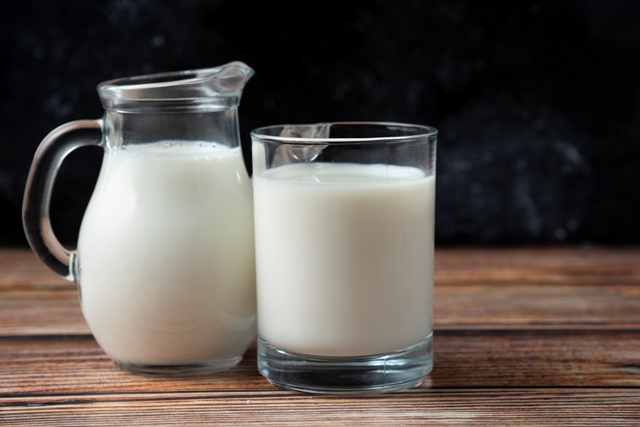

Cod fish
- It is another important source of iodine
- It is estimated that consumption of cod fish can easily met 66 percent of RDA of the respective nutrient. Though the amount of iodine present in cod depends on the region where the fish is caught
- It is also very popular for its omega 3 fatty acid content that plays various imperative role within our body such as helps to reduce the risk of developing cardiovascular diseases, hypercholesterolemia, obesity and diabetes mellitus
- Moreover iodine content and omega 3 fatty acid content make the cod fish a super food for our body that helps to boost up the overall well being
Macaroni
- It is another important source of iodine
- It has seen that one cup of boiled macaroni contains 27 mcg of iodine which is able to meet 18 percent of the RDA of respective nutrient
- Apart from its iodine content it is also loaded with fibre that is also accountable for offering numerous health benefits like its help to reduce blood cholesterol level, helps to prevent obesity, helps to regulate blood sugar concentration and finally plays imperative role in preventing cardiovascular diseases
- It contains iron too that helps to boost up the immunity of the body and also helps to promote the transportation of oxygen within the body
 Shrimp
Shrimp
- It is another important source of iodine and it is estimated that 3 ounces of shrimp contains 35 mcg of iodine that is responsible for meeting about 23 percent of RDA of the respective nutrient
- It is better to consume shrimp along with its shell because it is the shell which is containing higher concentration of iodine
- It contains healthy fat as well
- It also contains an important antioxidant named Astaxanthin which is responsible for providing its red colour. Astaxanthin also helps to protect the body from free radical induced oxidative damages which ultimately decreases the risk of developing the chronic diseases
- It helps to prevent cardiovascular diseases as well
- Moreover consumption of shrimp not only helps to prevent iodine deficiency disorders but also offers numerous other health benefits
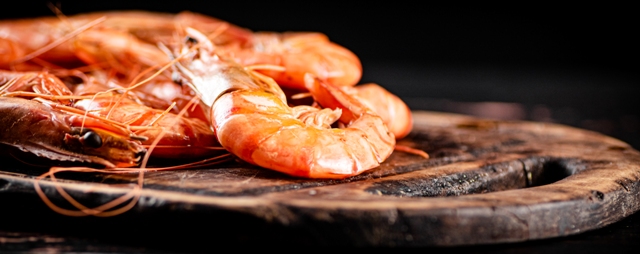
Tuna
- Consumption of tuna is responsible for meeting 11 percent of the RDA of iodine. It has seen that 17 mcg of iodine is present in 1 canned tuna
- It is also rich in omega 3 fatty acid that helps to prevent cardiovascular disease and also helps to boost up neurological health and keeps neurological disorders at bay
Egg
- Consumption of egg is considered as an important way to increase the iodine intake
- One large egg is associated with contributing 24 mcg of iodine that can helps to meet about 16 percent of RDA of iodine
- Egg is considered as one of the nutritious foods in the planet and its consumption is related with improving cardio metabolic health
- It is better to consume the egg yolk portion because the majority of iodine is present in the egg yolk

Chicken
- It is considered as another rich source of iodine
- It has estimated that chicken contains about 18 to 66 micrograms of iodine per 100 gm
- Inclusion of chicken in diet is also very helpful for fulfilling the requirement of iodine in body
Lima beans
- About 8 mcg of iodine is contributed by half cup of boiled lima beans which is responsible for fulfilling 5 percent of the requirement of iodine
- It also contains various other nutrients that offer numerous health benefits
Prunes
- It is another important food source of iodine that helps to meet about 90 percent of the requirement of daily iodine
- It also considered as a good source of energy and all the credit goes to it simple sugar content. Whereas the most important fact is that being a simple sugar rich food, its consumption does not increase blood sugar spike because of its high fibre, sorbitol and fructose contents
- It is also loaded with various phenolic compounds that helps to exert antioxidant activities which play vital role in decreasing the level of free radicals hence protect the body from oxidative damages as a result helps to decrease the risk of developing chronic diseases. On the other hand its anti oxidant activity is also accountable for preventing the oxidation of LDL cholesterol which also help to decrease the prevalence of chronic diseases

Corn
- About 14 mcg of iodine is present in half cup of corn that is accountable for fulfilling the requirement of iodine in body by about 9 percent
- It is extremely nutritious and can be enjoyed as a snack
- It is packed with various phenolic components that exert potent antioxidant activity as well
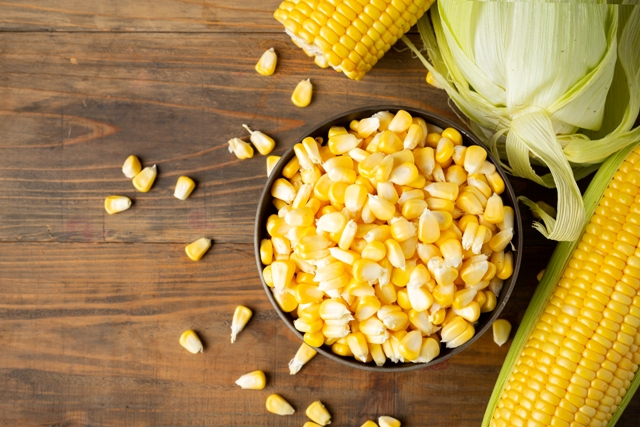
Source:
Bouga, M., Lean, M.E.J. and Combet, E., 2018. Contemporary challenges to iodine status and nutrition: the role of foods, dietary recommendations, fortification and supplementation. Proceedings of the Nutrition Society, 77(3), pp.302-313.
Dahl, L. and Meltzer, H.M., 2009. The iodine content of foods and diets: Norwegian perspectives. Comprehensive Handbook of Iodine; Preedy, VR, Burrow, GN, Watson, RR, Eds, pp.345-352.
Haldimann, M., Alt, A., Blanc, A. and Blondeau, K., 2005. Iodine content of food groups. Journal of food Composition and Analysis, 18(6), pp.461-471.
Park, Y.J., Paik, H.Y., Kim, M.J., Park, S., Jung, K.Y., Kim, T.H., Choi, H.S. and Song, Y.J., 2016. Dietary evaluation of a low-iodine diet in Korean thyroid cancer patients preparing for radioactive iodine therapy in an iodine-rich region. Nutrition research and practice, 10(2), pp.167-174.
Weng, H.X., Liu, H.P., Li, D.W., Ye, M., Pan, L. and Xia, T.H., 2014. An innovative approach for iodine supplementation using iodine-rich phytogenic food. Environmental geochemistry and health, 36(4), pp.815-828.
